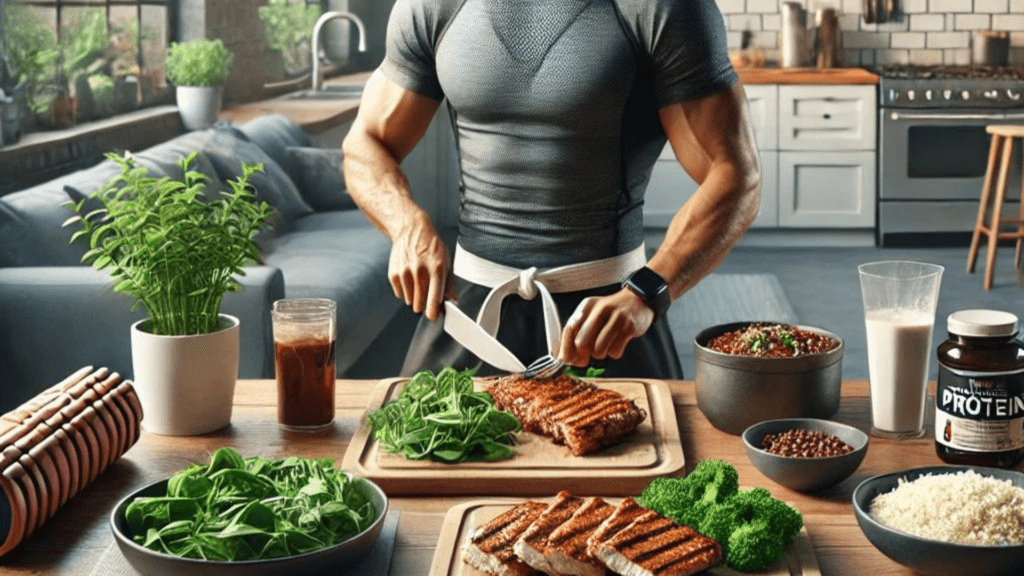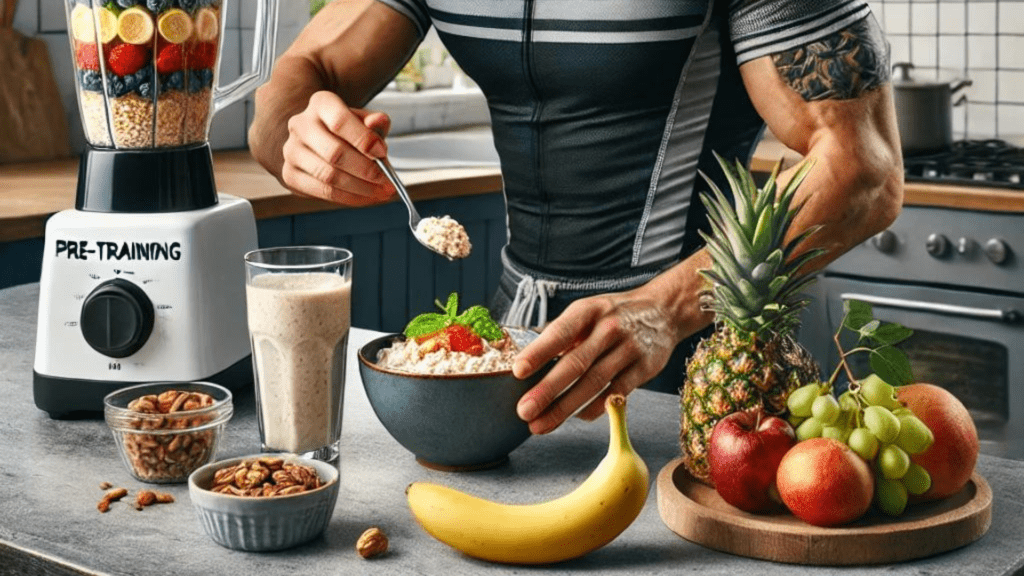Table of Contents
Introduction
Post-training nutrition is crucial for martial artists aiming to recover quickly, build muscle, and maintain peak performance. The right foods and drinks can aid in muscle repair, replenish energy stores, and reduce soreness. In this guide, we’ll explore the essentials of post-training recovery nutrition to help you optimize your recovery process.
The Importance of Post-Training Nutrition
Muscle Repair and Growth
Intense martial arts training causes micro-tears in muscle fibers. Consuming protein-rich foods post-training provides the amino acids needed for muscle repair and growth.
Replenishing Glycogen Stores
Carbohydrates are stored in muscles as glycogen, the primary fuel source during high-intensity workouts. Post-training carbs help replenish glycogen stores, restoring energy levels.
Reducing Muscle Soreness
Certain foods and nutrients can help reduce muscle inflammation and soreness, promoting quicker recovery and better performance in subsequent training sessions.
What to Eat After a Martial Arts Workout
Protein Sources
Benefits: Protein is essential for muscle repair and growth. Aim for high-quality, easily digestible proteins.
Examples:
- Lean Meats: Chicken breast, turkey, lean beef
- Fish: Salmon, tuna
- Plant-Based Proteins: Tofu, tempeh, lentils
- Dairy: Greek yogurt, cottage cheese, milk
- Protein Shakes: Whey, casein, or plant-based protein powders
Carbohydrate Sources
Benefits: Carbohydrates replenish glycogen stores, providing the energy needed for recovery and future workouts.
Examples:
- Whole Grains: Brown rice, quinoa, whole wheat bread
- Fruits: Bananas, berries, apples, oranges
- Vegetables: Sweet potatoes, carrots, leafy greens
- Legumes: Black beans, chickpeas, lentils
Healthy Fats
Benefits: Healthy fats reduce inflammation and support overall health. Include moderate amounts in your post-training meals.
Examples:
- Nuts and Seeds: Almonds, walnuts, chia seeds, flaxseeds
- Avocado: Rich in monounsaturated fats
- Oils: Olive oil, coconut oil
Hydration
Benefits: Proper hydration is crucial for recovery, aiding in nutrient transport and muscle function.
Examples:
- Water: Essential for rehydration
- Electrolyte Drinks: Replenish electrolytes lost through sweat
- Coconut Water: Natural source of electrolytes
- Herbal Teas: Hydrating and soothing
Timing Your Post-Training Nutrition
The Anabolic Window
The anabolic window, typically within 30-60 minutes after training, is when your body is most efficient at absorbing nutrients. Consuming a balanced meal or snack within this time frame can maximize recovery.
Example Post-Training Meal Plan
Immediately After Training (Within 30 Minutes)
Protein Shake with Banana
- 1 scoop of protein powder (whey or plant-based)
- 1 banana
- 1 cup of almond milk or water
Why It’s Good: Provides a quick source of protein and carbs to kickstart muscle repair and replenish glycogen stores.
1-2 Hours After Training
Grilled Chicken with Quinoa and Vegetables
- 4 oz. of grilled chicken breast
- 1 cup of cooked quinoa
- Mixed vegetables (broccoli, bell peppers, carrots)
- Drizzle of olive oil
Greek Yogurt with Berries and Honey
- 1 cup of Greek yogurt
- 1/2 cup of mixed berries
- 1 teaspoon of honey
Why It’s Good: Combines lean protein, complex carbs, healthy fats, and antioxidants to support comprehensive recovery.
Additional Recovery Tips
Consistency is Key
Ensure you consistently consume balanced meals and snacks post-training to maintain optimal recovery and performance.
Listen to Your Body
Pay attention to how your body responds to different foods. Adjust your post-training nutrition based on your energy levels, muscle soreness, and overall well-being.
Quality Sleep
Adequate sleep is crucial for muscle repair and recovery. Aim for 7-9 hours of quality sleep per night to support your training and recovery efforts.
Conclusion
Post-training nutrition is a vital component of any martial artist’s recovery regimen. By consuming the right balance of proteins, carbohydrates, healthy fats, and staying hydrated, you can optimize your recovery, reduce muscle soreness, and enhance your performance. Make post-training nutrition a priority and experience the benefits of a well-rounded recovery strategy.
Ready to optimize your post-training recovery?
Start incorporating these nutrition tips into your routine and feel the difference in your performance and recovery. Share your favorite post-training meals and recovery tips in the comments below!
External Links:



